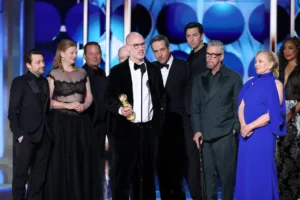The Chilling Presence Beyond Andrei Tarkovsky’s “Stalker”

Photo Courtesy of STALKR
★★★★★
Fear is a wasteland.
The process of splicing together elements that create a full-length feature can pose as a daunting and tedious procedure for many filmmakers out there within the wide world of motion pictures. Directors and producers treasure their own works of art as well as specific creations from other imaginative masterminds. And when you, as a viewer, watch a film because you either love the art form and the facets that go into its development or simply desire the flavor of true masterful entertainment, you see this visual manipulation that’s unlike any other experience you’ve ever encountered. Moreover, when you see something that strikes that special note within your mind, whether it’s devastatingly sorrowful or creatively infectious, you know from the second those white tinted credits roll downward on that screen that you have seen a vision from an auteur that adores the art of film and the way it’s storytelling counterparts all coalesce into a wonderful harmony that cannot be felt anywhere else. Furthermore, within Andrei Tarkovsky’s Stalker, a sort of sensation is felt by the viewer that cannot be imagined without truly seeing the way this beast of a motion picture takes its course. Additionally, throughout the entire expositional fragment and climactic sector of Stalker, Tarkovsky displays a very pragmatic vision of selfishness and desire within the casual cavalier male. However, as the final act’s theme begins to crystallize and the denouement officially stabilizes its position, you can finally understand how philosophically-driven this motion picture actually is.
Honestly, it’s quite remarkable the amount of tension and intensity Tarkovsky is able to stir up after minutely peppering the film’s plot growth with subtle substantial meaning. Also, the utilization of these long cuts and extended sequences of pure silence felt flawlessly deposited over certain set-pieces of the motion picture. Needless to say, this is only complimented by an utterly pristine adapted screenplay from Andrei Tarkovsky, Boris Strugatsky, and Arkady Strugatsky as well as some exemplary cinematography from Alexander Knyazhinsky, Georgy Rerberg, and Leonid Kalashnikov. Together, these artists and storytellers complete one of the greatest accomplishments in the history of world cinema. They consummate a film that rests its foundational themes upon the ideas of isolation and tranquility and how these two words can mold a person’s realizations to the magnitude that exceeds normality in a post-apocalyptic society. For example, one of the most simplistic, yet meaningful quotes throughout this masterpiece is when the stalker says “when a man thinks of his past, he becomes kinder.” This is one simple segment of a script that is so beautifully crafted and feels so refined around every corner. And this quote is an incredibly dejected sentence for someone to speak; but at the same time, this is so true in the sense that life keeps altering, and certain experiences people may have been able to achieve at one point can become completely twisted at another. From a more specific scope, this quote alone should be able to represent the purely symbolic nature of this script. As a result, Stalker seamlessly transitions through every topsy-turvy plot barrier and blossoms magnificently with its ingenious production design as well.
It is no shock that Andrei Tarkovsky is a proficient filmmaker that knows how to concoct a masterwork, but he is also an artistic visionary who knows how to conclude a work of art that will forever be known to the world as timeless. And, this motion picture realizes the truth in which films mean something to the world; Andrei Tarkovsky’s marvelous creativity means something to the world; and, without a doubt, Stalker is a film that, from 1979 and for the rest of time, will mean something larger than life to the world.








